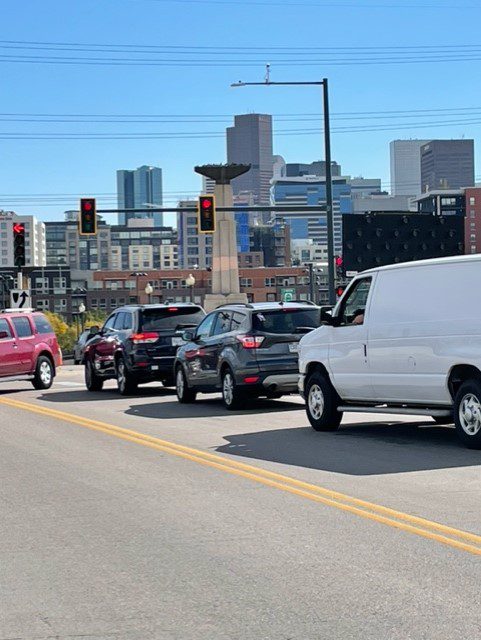Uber & Lyft (Rideshare) Accidents

UBER AND LYFT CAR CRASHES ARE DIFFERENT THAN ROUTINE CAR CRASH CASES FOR US AS LAWYERS.
THERE IS DIFFERENT LIABILITY INSURANCE AND DIFFERENT MEDICAL PAYMENT COVERAGE INVOLVED.
LET ME TELL YOU AS I HAVE WON SEVERAL OF THESE CRASH CASES.
WE HAVE REPRESENTED A LOT OF UBER AND LYFT DRIVERS AND PASSENGERS.
I call them crashes and not accidents because if you’re injured in a crash it really hurts, unlike a car accident which may imply no one is at fault. So if you are in a crash, as either a passenger of or a driver for a ride-hailing company like Uber or Lyft, you may wonder how your claim is different from a crash with 2 private people involved. In Uber and Lyft crashes someone is working or connected to a passenger via the App. When one is connected or “ON THE APP” or logged in like driving a paid passenger or on the way to getting a passenger, additional commercial motor vehicle insurance likely applies.
As in any serious crash, get reasonable medical attention as soon as you can. If very serious go to an Emergency Room. If not as serious, go to an Urgent Care Clinic. If you can wait see your family doctor or a specialist, like an orthopedic or a spine doctor. That works as well. Another choice for neck or back injuries would be to go to a chiropractor after you know that there are not fractures or serious spinal injuries. One way to check for serious back injuries are X-rays, CT Scans and MRIs.
I do not recommend speaking to the other driver or the Uber or Lyft Insurance companies until talking to me as an attorney. Let the police handle the reporting, but do take pictures and get names of witnesses.
Where Uber and Lyft car accidents differ from normal car accidents is the different insurance involved. Lyft and Uber require their drivers, who are usually contractors, to be covered under a commercial insurance policy.
Typically, if your driver is logged in to the app or connected to the Ride Share System, you will be covered under the insurance policy of your rideshare company. However, the amount of coverage will be determined by whether you were a driver searching for a passenger or actively logged in an Uber and Lyft ride either as a driver or passenger.
When logged in for a ride, both the driver and passenger are often protected under a $1 million commercial insurance policy. If you are a passenger and your rideshare driver causes the accident, you are protected under this policy. If an outside driver caused the wreck, typically their insurance will pay for the damages. If the insurance coverage of the at-fault driver is inadequate, the rideshare company’s NOW has underinsured motorist coverage per Colorado law. It also has uninsured motorist coverage. The amount for uninsured motorist coverage and also underinsured motorist coverage will be at least $200,000 per person and $400,000 per crash or occurrence.
If you are an Uber or Lyft driver and get into an accident while your app is on and you are searching for a passenger, you are usually covered under a liability insurance policy for a lesser amount. Typically, this will be up to $50,000. Most of the time, you will only be eligible for the $1 million in coverage if you are on an active job. If your app is off, your car accident will be covered under your personal insurance as normal. Each insurance company handles how they deal with drivers who are using their personal vehicle for ridesharing in different manners. Be sure to check your personal insurance policy to see if your policy allows your vehicle to be used in the ridesharing business.
Again, we explain further that there is a new Colorado law for uninsured insurance coverage. Meaning if you are injured by an uninsured at fault driver while you are using an Uber or Lyft.
This is now the law under Colorado revised Statute C.R.S. Section 40-10.1-604. Registration – financial responsibility of transportation network companies – primary liability insurance – insurance protection against uninsured motorists. This new law provides regulation for Ride-Shares, food delivery which Colorado law calls “a transportation network company” to get insurance coverage for a transportation network company driver to protect against damages caused by uninsured motorists, the named insured may not reject the coverage for periods when the transportation network company driver is engaged in a ride or logged into the transportation network company’s digital network but not engaged in a prearranged ride. Specifically the law states:
FOR THE DRIVER AND FOR EACH TRANSPORTATION NETWORK COMPANY RIDER IN THE DRIVER’S PERSONAL VEHICLE FOR INCIDENTS INVOLVING THE DRIVER DURING A PREARRANGED RIDE. SUCH COVERAGE MUST BE IN THE AMOUNTS OF AT LEAST TWO HUNDRED THOUSAND DOLLARS PER PERSON AND FOUR HUNDRED THOUSAND DOLLARS PER OCCURRENCE.

